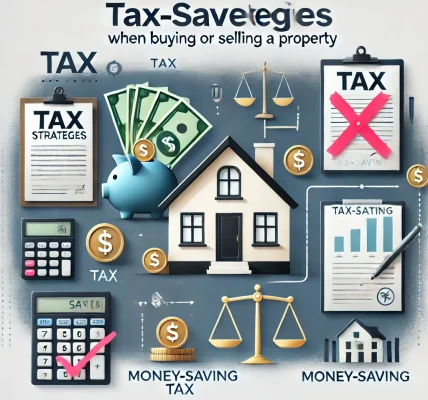Tax planning is one of the most crucial aspects of personal financial management, yet it is often overlooked by many individuals. While most people think of taxes only when it’s time to file them, the reality is that effective tax planning can have a significant impact on your financial future. Whether you are an investor, a business owner, or someone simply looking to optimize your financial situation, understanding and implementing smart tax strategies is essential to keeping more of your hard-earned money.
In this guide, we’ll explore the importance of tax planning and how it plays a vital role in achieving your long-term financial goals.
What is Tax Planning?
Tax planning is the process of organizing your financial affairs in a way that minimizes your tax liability. This involves making decisions regarding income, expenses, investments, and other financial matters that can affect your taxes. The goal is not only to reduce your tax burden but also to avoid surprises during tax season.
Good tax planning includes strategies to take full advantage of tax deductions, credits, and tax-deferred accounts. It also involves understanding the tax implications of various financial decisions throughout the year, rather than just at tax time.
Why is Tax Planning Important?
1. Maximizing Your Deductions and Credits
One of the primary benefits of tax planning is the ability to maximize your deductions and credits. By being proactive and understanding what tax breaks are available to you, you can reduce your taxable income and lower your overall tax bill.
- Standard vs. Itemized Deductions: Depending on your financial situation, you may be able to itemize deductions like mortgage interest, medical expenses, and charitable donations instead of taking the standard deduction. Tax planning helps you determine which option gives you the best tax savings.
- Tax Credits: Credits such as the Child Tax Credit or the Earned Income Tax Credit directly reduce the amount of tax you owe, unlike deductions, which reduce taxable income.
2. Reducing Your Taxable Income
Effective tax planning allows you to take advantage of various investment accounts, such as IRAs or 401(k)s, that offer tax-deferred growth. Contributing to retirement accounts not only secures your financial future but also helps lower your taxable income for the current year. The more you can lower your taxable income, the less you’ll owe in taxes.
3. Retirement Planning and Taxes
A well-thought-out tax strategy is essential when planning for retirement. Many retirement accounts come with specific tax advantages, such as traditional IRAs and 401(k)s, which allow you to defer taxes on the money you contribute until you withdraw it in retirement. Other accounts, like Roth IRAs, allow for tax-free growth and withdrawals.
Tax planning can also help you determine when it’s best to withdraw from different accounts in retirement to minimize the taxes you’ll pay. The key is to balance your tax liabilities and take advantage of tax-efficient withdrawal strategies.
4. Avoiding Tax Penalties
One of the most significant benefits of tax planning is avoiding tax penalties and fees. By planning ahead, you can ensure that you’re paying the right amount of taxes throughout the year through withholding or estimated payments. Many people are hit with penalties for underpayment or late filing, but proper tax planning can help you avoid these situations.
5. Improving Cash Flow
Smart tax planning doesn’t just help you save money at tax time; it also improves your overall cash flow. By structuring your finances in a tax-efficient way, you can have more disposable income available for savings, investments, and other important financial goals. Whether it’s through reducing tax withholdings or planning for tax refunds, tax planning ensures that you manage your cash flow effectively.
Key Tax Planning Strategies for Personal Finance
1. Contribute to Tax-Advantaged Accounts
- Retirement Accounts: Contribute to 401(k)s, IRAs, and other retirement accounts to defer taxes and reduce your taxable income.
- Health Savings Accounts (HSAs): If eligible, contribute to an HSA to benefit from triple tax advantages: tax-deductible contributions, tax-free growth, and tax-free withdrawals for qualified medical expenses.
- Education Accounts: Contribute to 529 plans or Coverdell accounts for tax-free growth and withdrawals for qualified education expenses.
2. Timing Your Income and Expenses
Tax planning involves not just understanding tax-saving strategies, but also timing your income and expenses. For example, you might want to delay receiving a bonus or other income until the following year if you expect to be in a lower tax bracket. Similarly, deferring some expenses until the next year may help reduce your taxable income in the current year.
3. Capital Gains and Investment Strategies
Understanding how capital gains are taxed can significantly impact your investment strategy. Long-term capital gains (from assets held for more than a year) are taxed at lower rates than short-term capital gains (from assets held for less than a year). Tax planning can help you optimize your investment sales to minimize tax consequences.
4. Tax-Efficient Withdrawal Strategies
As you approach retirement, you’ll need to think about how to withdraw from your investment accounts in a way that minimizes taxes. For example, it may make sense to withdraw funds from taxable accounts first, while letting tax-deferred accounts like traditional IRAs continue to grow.
The Role of a Financial Advisor in Tax Planning
While tax planning can be done on your own, many individuals benefit from the expertise of a financial advisor or tax professional. A good advisor can help you understand complex tax laws, identify deductions and credits you may have missed, and develop tax-efficient strategies tailored to your unique financial situation.
Final Thoughts
Tax planning is an essential component of personal financial management, helping you save money, avoid penalties, and make the most of your financial resources. Whether you’re saving for retirement, planning for college expenses, or simply looking to optimize your income, understanding and applying tax planning strategies can significantly impact your financial success.




